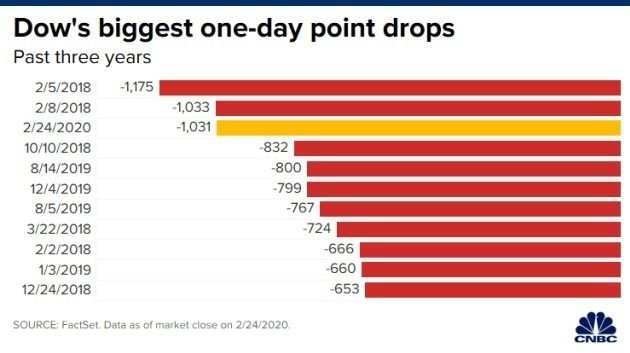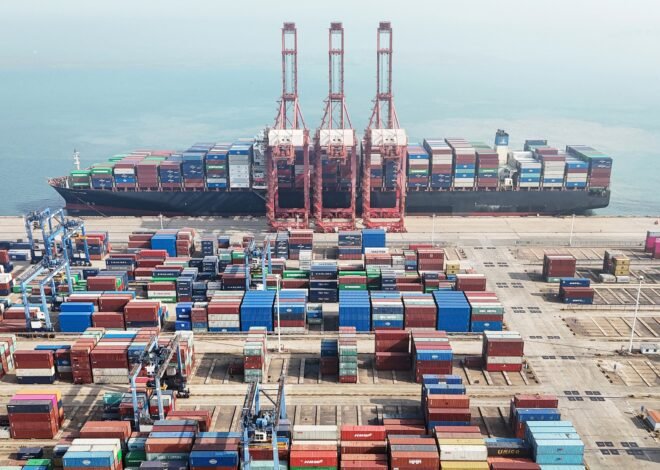
How the corona virus ‘knocked down’ the world economy
`The body’s immune response to infection is often more painful than the infection itself. The same is true of epidemics and the economy,` commented the Wall Street Journal.
Unrest due to fear
As well as terrorist attacks and financial crises, epidemics create widespread instability and sometimes panic.
Dow Jones’ strongest falling days in the past 3 years.
Based on health impacts alone, the coronavirus is not a major problem for the global economy.
The difference is that the extent and severity of damage from an earthquake is much more limited and obvious than from a virus.
The US has warned citizens not to travel to China and banned entry of any non-US nationals who have been to China in the past 14 days.
Lack of response experience
Due to the epidemic, instead of regular support, many countries tightened their borders.
`Traditionally in public health, the interventions that we know work to slow disease are things like diagnosis, quarantine at home or in the hospital, protecting health care workers…`,

The seafood market in Wuhan, China is closed.
Since human history has no data on macro interventions such as locking down a city, banning travel from a part of the country, or from an entire country, so far the effects and consequences
`We’ve gone from confidence to panic and action that isn’t based on evidence, which is having a huge impact on the economy,` said Lawrence Gostin, director of the O’Neill Institute for National and Global Health Law at the
According to him, quarantining Americans who are in an infectious area such as a cruise ship is reasonable.
Goldman Sachs predicts that the US economy in the first quarter of 2020 will lose 0.8 percentage points due to damage from reduced tourism, exports and supply chain disruption.
However, it should be noted that these two estimates of the impact of the Covid-19 epidemic and many other forecasts are still only speculations.
‘There is no way’ to cure
The US Federal Reserve can respond to the risk of a US economic recession (if any) due to the epidemic by cutting interest rates.
Even if they cut interest rates, the effect will be limited.
After the terrorist attacks of September 11, 2001, the US economy plummeted due to fear of more terrorism.
Another problem is that in both 2001 and the 2007-2008 recession, the Fed cut rates by about 5 percentage points.
Finally, how policymakers in other countries will respond to global economic fluctuations during this epidemic is still unknown.


